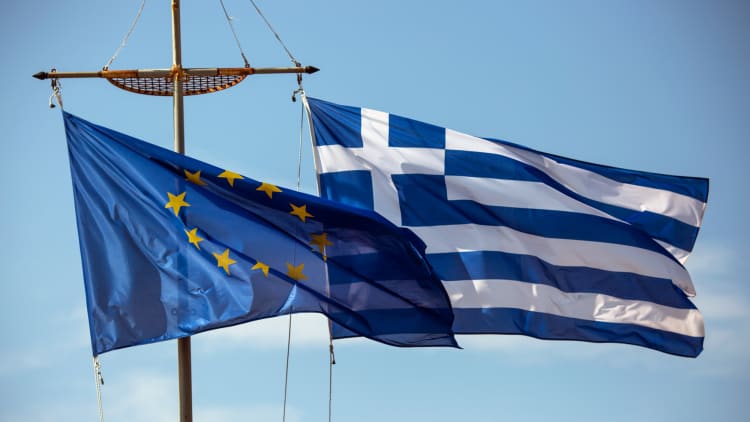Mired in $73 billion in debt, Puerto Rico has tried multiple avenues to get its financial affairs in order, including the introduction of HR 870, a U.S. congressional bill that would let its municipalities and public corporations declare bankruptcy under Chapter 9—as is allowed in the states. But some experts think it's unlikely Congress will pass the bill.
"The perception is that, if you give Puerto Rico the authority to file for bankruptcy, that's the equivalent of a federal bailout, and that taxpayers in Iowa, in Texas and Alaska are authorizing federal funds to be spent to bail out Puerto Rico," Frank Shafroth, a professor specializing in municipal bankruptcy at George Mason University, said at a conference this week.
Shafroth added that the perception is wrong: Detroit, he noted, did not receive "a thin dime" when it declared bankruptcy in July 2013. Bankruptcy is the opposite of a bailout, he said at the Ravitch Puerto Rican Fiscal Crisis Session in New York. (Tweet This)
"[Bankruptcy] says, 'You have a problem. We don't think you can pay your own way to get out of it, [so] we're not going to send you a dime, but we will give you the authority to ... let you, together with a U.S. bankruptcy court, work out some sort of system to return to solvency.'"
The bill, now with the House's Judiciary Committee, was introduced last February and is a necessary tool for Puerto Rico to get its house in order, the island's governor, Alejandro Garcia Padilla, said at the conference.
Read MoreIs Puerto Rico the Greece of America?
"My message is simple: Puerto Rico needs Congress to approve HR 870 in order to negotiate in good faith with our creditors within a legal framework that can provide [with] certainty that vital services will continue running," Garcia Padilla said.
Puerto Rico ran up its deficit by paying debt with more debt for a number of decades.
Garcia Padilla made his remarks the same day the island's Government Development Bank, its financing arm, announced a 24 percent drop in net liquidity from April to May. The bank made the statement as a $655 million bond payment looms on July 1.

Critics of the bill say that it infringes on the rights of investors. Republican congressman and chairman of the House Judiciary Committee, Bob Goodlatte, said at a hearing in February that the bill could have dire consequences for bondholders.
Goodlatte said at the time that "bondholders purchased Puerto Rican bonds at a time when Chapter 9 was not an option. Proposals to retroactively impact investors' rights should be reviewed with care and caution."
On April 27, ratings agency Standard & Poor's downgraded the commonwealth's general obligation bonds from B to CCC+, noting that its "market access prospects have further weakened, and Puerto Rico's ability to meet its financial commitments is increasingly tied to the business, financial and economic conditions on the island."
Puerto Rico has taken steps to try to tackle its financial problems.
Read MorePuerto Rico bonds a good bet? Jeffrey Gundlach says yes
For example, the commonwealth's lawmakers approved a sales tax increase from 7 percent to 11.5 percent last May, which Garcia Padilla is expected to sign into law. The hike would raise $1.2 billion and would allow the government to pursue negotiations with hedge funds and other creditors over a bond deal of up to $2.95 billion.
The island faces other problems, among them a declining population and high unemployment.
"This troubling [population] loss can be traced to an exodus of Puerto Rican citizens to the U.S. mainland, a current that has picked up considerably in recent years as Puerto Rico's economy has deteriorated. Today, fully a third of those born in Puerto Rico now reside on the U.S. mainland," the Federal Reserve Bank of New York said in a recent report.
Puerto Ricans are U.S. citizens and have the right to move freely between the island and the mainland.
"This mobility has led more Puerto Rican workers to leave the Island in greater numbers when economic opportunities have dwindled. In fact, Puerto Rico's economy has been particularly weak since 2005, driving workers off the Island in burgeoning numbers over the past several years," the bank added.
According to the Bureau of Labor Statistics, the commonwealth's April unemployment rate, the latest available reading, stood at 12.2 percent, more than double the jobless rate on the U.S. mainland.
—CNBC's Everett Rosenfeld and Reuters contributed to this report.


